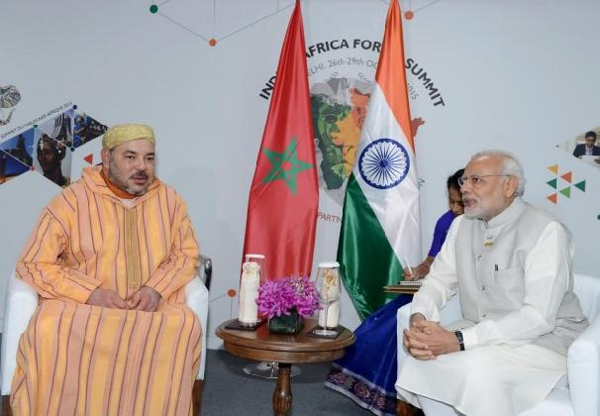NEW DELHI: India and its key partner in North Africa, Morocco, have collaborated to prevent further terror strikes in Sri Lanka after the Sunday Easter bombings in what can be described as a major success in counter-terror operations in the subcontinent in recent times.
Morocco, which maintains a substantial information bank on ISIS and its network provided leads to Sri Lanka in collaboration with India that led to an operation in Colombo to eliminate terrorists who were planning second round of attacks after Easter Sunday bombings, ET has learnt.
Besides additional information was provided by Morocco to Sri Lanka that helped to preempt other terror attacks that ISIS was planning to orchestrate, according to persons familiar with the developments.
Earlier within hours of the attack Morocco had shared intelligence with Delhi and Colombo to identify nine suicide bombers responsible for Eastern Sunday bombings.
Morocco has wide-ranging and effective counter partnerships with leading countries including USA, France, Spain and India among other countries and signed three counter-terror pacts with Delhi since last year. In February, Rabat and Delhi during Foreign Minister Sushma Swaraj visit signed a memorandum of understanding to fight terrorism.
In fact Morocco that follows a moderate school of Islam, has one of the successful records of counter-terrorism and de-radicalization. Last year Abdelhak Khiame, Head of Morocco’s Central Bureau of Legal Investigation (BCIJ), said Moroccan security services dismantled “183 terrorist cells” in the country that were in the various stages of planning “361 devastating terrorist projects”. More than 3,000 people, including 292 individuals with previous criminal record, have been arrested by Moroccan authorities over the past decade.
Morocco over the year has adopted three major national counterterrorism measures, officials told ET. The first was a ‘home affairs’ approach to security. In October 2014, the Ministry of the Interior launched Operation Hadar (Arabic for ‘vigilance’), requiring the security forces to work together to combat terrorism. This resulted in enhanced security at airports, train stations and border posts.
The second measure was to strengthen the legal system. In 2015, the Moroccan parliament amended the country’s counterterrorism laws to criminalise a range of possible terrorism-related activities, including travel to Syria.
The third step was creation of BCIJ as the lead agency for counterterrorism in Morocco. Since 2015, it has been responsible for numerous terrorism-related arrests and is credited with preventing several terrorist attacks in Morocco.
BCIJ works closely with Morocco’s security agencies — Morocco’s general directorates of national security and territorial surveillance to raid terror cells across Morocco. On April 24, Morocco arrested a seven-member terror cell which was plotting to undermine the security of the country. The operation is one of many that BCIJ has carried out throughout the year against terrorists.
European countries have been working closely with Morocco (Africa’s second biggest economy), and conducting joint anti-terror operations with Moroccan security forces.
During a visit to India last year to sign two anti-terror related pacts Moroccan Justice Minister Mohamed Auajjar had told ET: “Islam is against terrorism and this is message that Morocco led by its King who is commander of all beliefs in Morocco trying to propagate. There is wrong interpretation of jihad that is being propagated instead of a jihad against poverty. Islam forbids killing of human beings. In Morocco, we have been practicing right values of Islam which encompasses compassion and kindness. Morocco’s deradicalization initiatives have been lauded by the international community. We pursue a multidimensional counter-terror strategy that are three distinct stands – intelligence gathering; socio-economic reforms; and reform of religious schools.”
Source: ET
Image Courtesy: MoroccoWorldNews
You may also like
-
IAF Aircraft Set Course For Exercise Eastern Bridge VII At Oman
-
India-us Working Together In Areas Like Critical Minerals, Supply Chains And Advanced Technologies: Shri Piyush Goyal
-
Defence Secretary to co-chair 5th India-Philippines Joint Defence Cooperation Committee meeting in Manila
-
2nd India-Japan Finance Dialogue held in Tokyo on 6th September, 2024
-
Prime Minister, Shri Narendra Modi welcomes Crown Prince of Abu Dhabi
